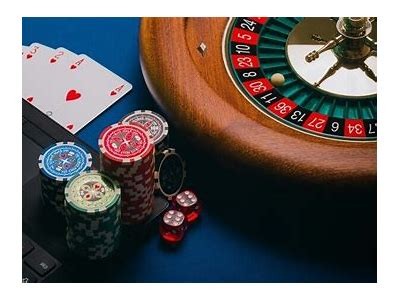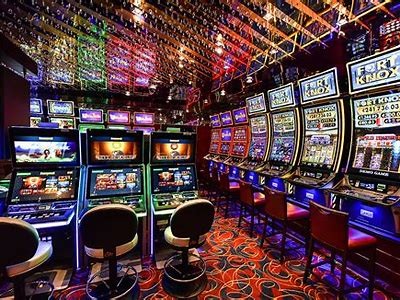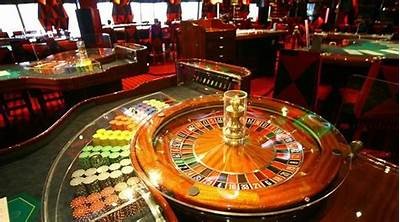Gaming has been an integral part of human culture for centuries, transcending geographic boundaries and evolving through various forms and formats. Two terms that frequently surface in the gaming community are 'Cassino' and 'Casino'. While they sound similar, they actually represent different gaming landscapes with unique features, cultures, and histories. This article aims to delve into the complexities and nuances that differentiate Cassino from Casino, examining their historical contexts, gameplay mechanics, social implications, and cultural significance.

To fully appreciate the differences between Cassino and Casino, we must first explore their historical backgrounds. The term "Casino" is derived from the Italian word "casa," which means house. It originally referred to small country villas or social gatherings where people could relax and partake in leisure activities. As time progressed, these locations evolved into places dedicated to gambling, offering a variety of games like poker, roulette, and slot machines.

On the other hand, "Cassino" refers to a specific card game that originated in Italy. It is traditionally played with a 52-card deck and is known for its unique mechanics and strategies. Cassino has deep roots in Italian culture and has been played in family gatherings, enhancing its social dimension. Unlike the broader concept of casinos, Cassino holds more emphasis on skill and tactics rather than mere chance.

When talking about casinos, one cannot overlook the diverse range of games they offer. Slot machines, table games, and poker are just the tip of the iceberg. The gameplay in a casino largely revolves around chance, with RNG (Random Number Generator) technology ensuring fair play. For instance, slot machines require little to no player skill, relying heavily on luck for success. Meanwhile, table games like blackjack and poker involve elements of strategy and skill, making them more engaging for players who enjoy a competitive edge.

Cassino, in contrast, is a game that emphasizes skill and strategy. Players aim to capture cards from a central layout by matching them with cards in their hand. The game often requires players to employ critical thinking, memory, and psychological tactics to outsmart their opponents. The manner in which points are accumulated and the ability to execute complex strategies set Cassino apart from the luck-driven games commonly found in casinos.

Casinos have long been viewed as social hubs where individuals can gather to enjoy entertainment, socialize, or escape from daily life. They often feature restaurants, shows, and nightlife, creating a full-fledged experience beyond just gambling. The allure of casinos often includes thrilling environments that foster social interaction among players, enhancing the communal aspect of gaming. Cassino as a Family Game
In contrast, Cassino often takes place within smaller, more intimate settings. It might be played among family members or friends, emphasizing bonding and interaction. The nature of Cassino lends itself to learning and teaching within families, often passed down through generations. Thus, while casinos focus on socializing in a large, vibrant atmosphere, Cassino promotes deeper connections among a limited number of players. Cultural Significance The Casino Culture
Casino culture is characterized by glitz, glamour, and sometimes excess. The flashy lights, elaborate shows, and luxurious settings create an enticing environment for gamers. Furthermore, casinos often play a significant role in the economic landscape of areas they inhabit, attracting tourists and generating revenue. The famed Las Vegas Strip epitomizes casino culture, embodying a blend of entertainment, escapism, and the pursuit of luck. Cassino in Italian Heritage
Conversely, Cassino is steeped in Italian heritage and serves as a reminder of familial ties and cultural traditions. Its significance transcends mere gameplay; it represents gatherings, storytelling, and the transmission of cultural values. In Italian households, playing Cassino is more than just passing time; it’s an opportunity to connect with one’s roots and foster relationships. Economic Impact Casinos and Local Economies
Casinos significantly impact local economies, generating employment, increasing tourism, and boosting local businesses. They are often involved in community initiatives and charitable donations, becoming an integral part of the economy. Major casinos can contribute to advancements in infrastructure, promoting development and urban growth. Cassino’s Contribution
While Cassino may not directly influence economies at the same scale, it contributes to cultural tourism. Families and groups interested in traditional gaming experiences seek out locations that promote Cassino, enriching the cultural tapestry of a community. Events featuring Cassino can draw enthusiasts, creating a space where tradition and modernity intersect. Conclusion
In summary, while Cassino and Casino may seem similar in their engagement with gaming, they represent fundamentally different experiences and cultures. Casino embodies a broader spectrum of entertainment and social interaction, often dominated by chance, whereas Cassino focuses on skill, strategy, and intimate connections among players. Understanding these differences offers deeper insights into the rich tapestry of global gaming culture, revealing how gameplay can shape not just individual experiences but entire communities. Tags